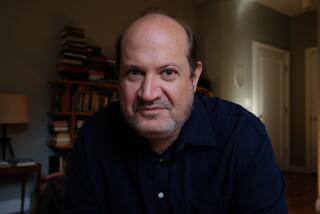Harold ‘Hal’ Lipset; Detective Known as the ‘Private Ear’
Harold “Hal” Lipset, internationally known private detective whose trademark was electronic surveillance devices, including a bugged martini olive, has died. He was 78.
Lipset, sometimes known as “the private ear” as well as “the private eye” because of his listening mechanisms, died Monday in a San Francisco hospital of cardiac arrest after an aneurysm.
He was the founder of the World Assn. of Detectives, which has more than 700 members in about 40 countries.
Lipset was appointed chief investigator of the Senate Watergate investigation committee in 1973, but resigned after critics publicized a 1968 conviction for electronic eavesdropping. The misdemeanor was in violation of a New York wiretap statute and was considered such a minor offense that Lipset, after pleading guilty, received no sentence.
True Detective magazine once called Lipset “the maestro of electronic private detection.” He acquired his first piece of electronic equipment, a wire recorder, in 1948.
Lipset was perhaps best known outside San Francisco for his often-parodied bugged martini olive. He introduced the olive to a U.S. Senate subcommittee in 1965 to illustrate how far miniaturization of surveillance equipment could go. The device, he later told a reporter, “was strictly for show” because it would operate for only 20 minutes and at a range of only 40 feet.
He studied public relations in college, but learned about the investigation business when he served in the Army during World War II and was head of a criminal detective team in Europe. After the war he set up his Lipset Service, which he later operated out of his elegant 25-room house in Pacific Heights.
Lipset began working for top lawyers in the San Francisco Bay Area and admitted patterning himself and his business after Paul Drake, the private eye assisting Perry Mason in books by Erle Stanley Gardner.
An habitue of the opera and symphony, Lipset sometimes disappointed members of the media who wanted him to emulate the fictional and colorful Sam Spade.
“It’s not all girls, guns, booze and punching out the thugs, like Mannix,” he told The Times in 1974. “I don’t even carry a gun.”
Lipset did act as technical advisor on Francis Ford Coppola’s 1974 film “The Conversation,” starring Gene Hackman as an obsessive surveillance expert.
“A few years ago my doorbell rang one night and standing there was this bearded stranger with a big belly, holding a script,” Lipset said, explaining how he became involved. “He told me his name was Coppola, which meant nothing to me, and asked me if I’d read his script and check it for authenticity. I read it that night and I was enthralled.
“I couldn’t figure out how this guy could know so much about my work,” said Lipset, who liked the film enormously. “From that point on, I stayed with the project. It’s extremely authentic, although, for dramatic purposes, Francis wound up having to take certain liberties with the technical aspects of electronic eavesdropping.”
A widower since 1964, Lipset is survived by his two sons, Louis, of San Francisco, and Lawrence, of Mendocino County, and one grandchild.
More to Read
Sign up for Essential California
The most important California stories and recommendations in your inbox every morning.
You may occasionally receive promotional content from the Los Angeles Times.









